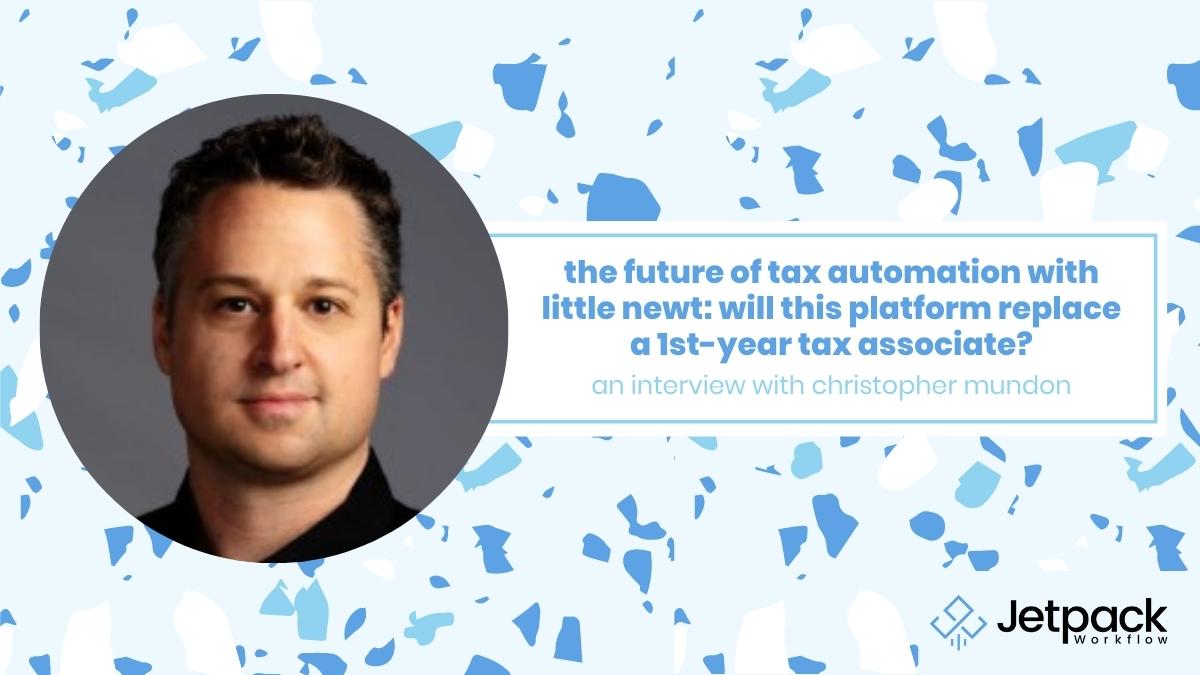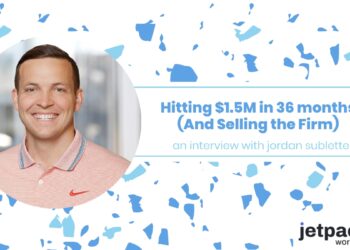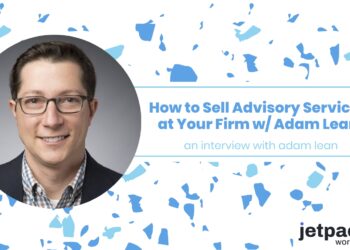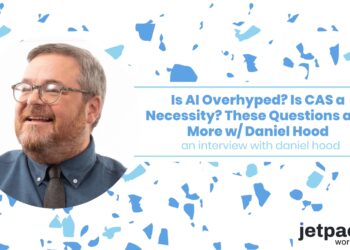The Future of Tax Automation with Little Newt: Will this platform replace a 1st-year tax associate?

Summary
- What Is LittleNewt?
- History & Technology Behind LittleNewt
- The Future of LittleNewt
- Trajectory of the Industry
- Who is LittleNewt for?
Additional Resources
- littlenewt.com
- Chris’ email: cmundon@littlenewt.com
Meet Christopher Mundon
Christopher Mundon is the CEO and Co-Founder of Little Newt, a company whose goal is to develop and market a truly revolutionary federal income tax automation product.
What Is LittleNewt?
Christopher notes that the product is designed to do what he did during his first year as a tax associate at Ernst & Young. It automatically gathers PDC, creates work papers, does the M1 calculations, maps everything out, and then sends the data to the determined tax software. “And it does all of this in about 20 minutes,” Mundon says. “So what used to take me about a day-and-a-half as a first-year tax associate, this does in about 20 minutes, running nonstop.”
According to Mundon, the goal is for LittleNewt to function as a fully automated first-year tax associate. Despite this goal, the current intention is to enhance the functionality of existing tax prep software.
History & Technology Behind LittleNewt
Mundon notes that the idea came to him while he was in college. As a fourth-generation CPA, he knows how hard tax season can be. So, LittleNewt—which is the nickname his grandfather had—is designed to lessen the impact of tax season on a CPA’s life, which is why they license it to CPA firms.
Technologically speaking, LittleNewt makes use of an NLP algorithm that reinterprets the data funneling into their database to determine what information is necessary from a tax standpoint and uses that information to prep work papers. “And then, through an older technology, we can send the data from our work papers directly to the software itself,” Mundon says. He notes that it was the move to cloud accounting software that really enabled this process.
Get everything you need to manage projects and meet deadlines.
Subscribe to our weekly newsletter, and get 32 free accounting workflow templates today!
sign me up!
One of the things that Mundon hears over and over again is people saying “Fake it till you make it. I hated that advice. I’ll say we do think that, once we start to scale, our software will learn from user interfaces and inputs,” Mundon shared. He notes that the engineer that developed the NLP program for LittleNewt has also developed a machine learning program for the company to roll out once they have more users onboard. For example, LittleNewt is not currently set up to handle 74b or 74c tax forms, but the infrastructure is there for the eventual rollout.
The long-term goal is to help the program progress from a first-year associate level up through second-year associate, senior associate, and eventually manager. “I doubt that it would ever get to the level of a partner, but that’s the goal,” Mundon says. The trajectory is to help CPAs move away from tax prep toward tax planning and consulting.
Trajectory of the Industry
“I think the CPA definitely is not going to go away. It will change,” Mundon says. According to Mundon, AI will have a bigger impact on firm development and industry evolution than Excel did. AI will essentially become a part of a firm’s staff. What AI will allow CPAs to do is shift to being a reviewer instead of a preparer and focus on the softer skills needed for customer engagement.
This is why the role of a technologist is going to become increasingly important for firms. While you as the CPA focus on those soft skills and engaging your customers, you need to have someone on staff that is dedicated to helping you build out the technology stack that will help you grow.
“CPAs are becoming more and more like technologists, and I 100% agree with that. I think CPAs are somewhat inherently software developers,” Mundon says. “Anyone who knows Excel really well could easily make the transition to being a software developer, because they’re inherently used to formulas and love databases.”
Who is LittleNewt for?
“Our sweet spot right now is bookkeeping firms that also do tax work,” says Mundon. However, he clarified that LittleNewt rarely does work with businesses that don’t at least have an executive assistant. While their primary focus is on bookkeepers that do business returns, they also want to grow into larger markets. Presently, LittleNewt is able to help process several different types of business returns: 1120, 1120S, 1065, and, later this year, 1040.
“1040s are a special beast because, whereas business returns are more financials-based, 1040s are more W-2s, 1099s, K-1s, so you have to have the ability to import and read PDFs—which we’re just now starting to build into it,” Mundon says.
Mundon reflected back on something he heard in his undergraduate program. One of his professors told his class that any tax return software should only have one place to enter in data. “At the time, I was like, ‘Uh, yeah. Who wouldn’t do it that way?’ but then you get out into the real world and think, ‘Oh no, this is terrible,’ because these software are just riddled with redundancies.” The potential for errors is just everywhere. Mundon believes that CPAs should only ever have to correct data in the work paper, and that’s it.
Conclusion
We covered a ton of great information in the podcast. If you’re after more detailed information, be sure to check out the full episode! If you’d like to connect with Christopher, you can visit his website, email him at cmundon@littlenewt.com, or send him a text at 512-318-3196.





